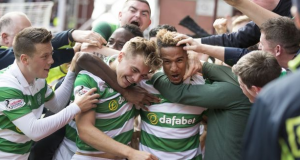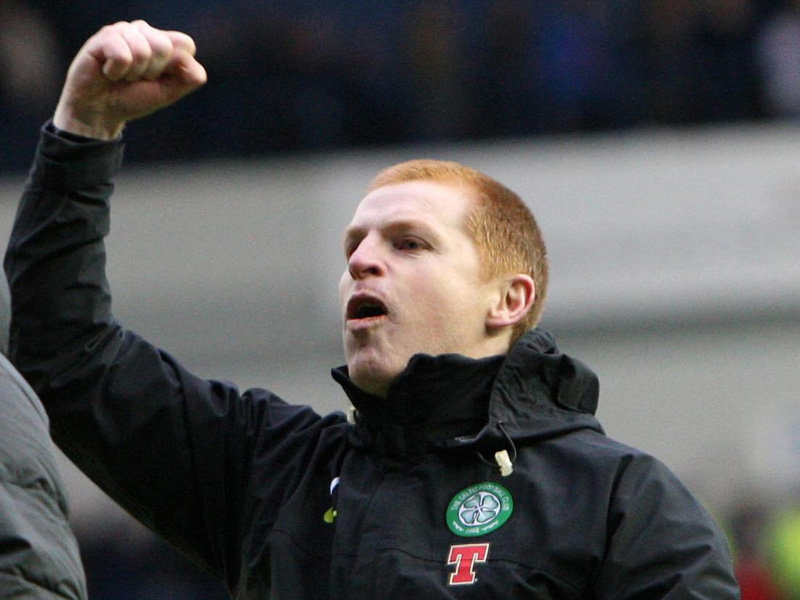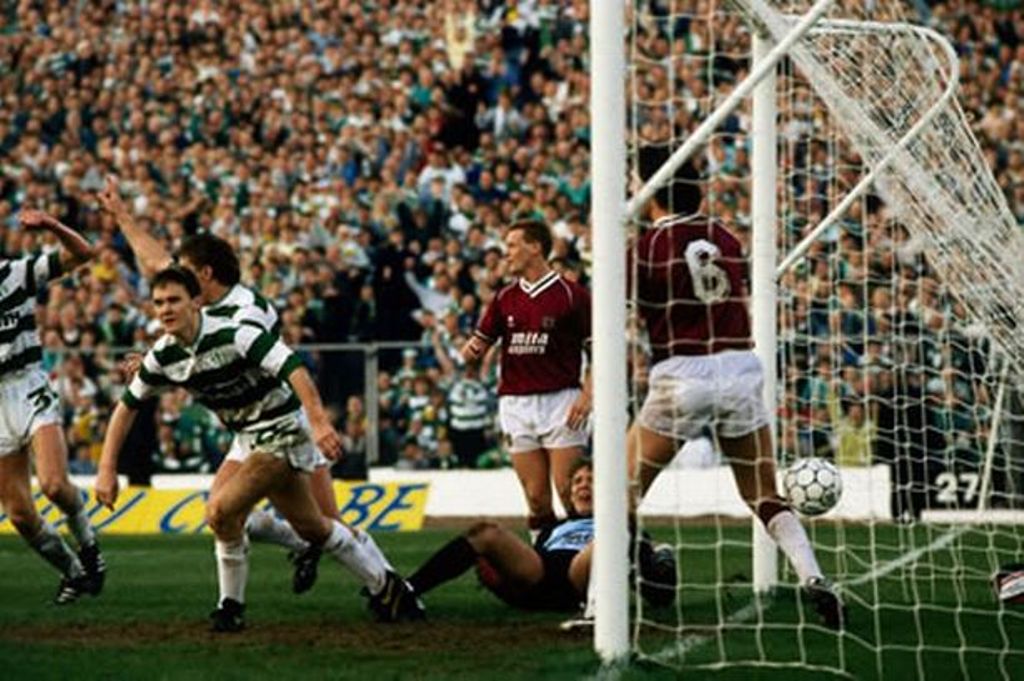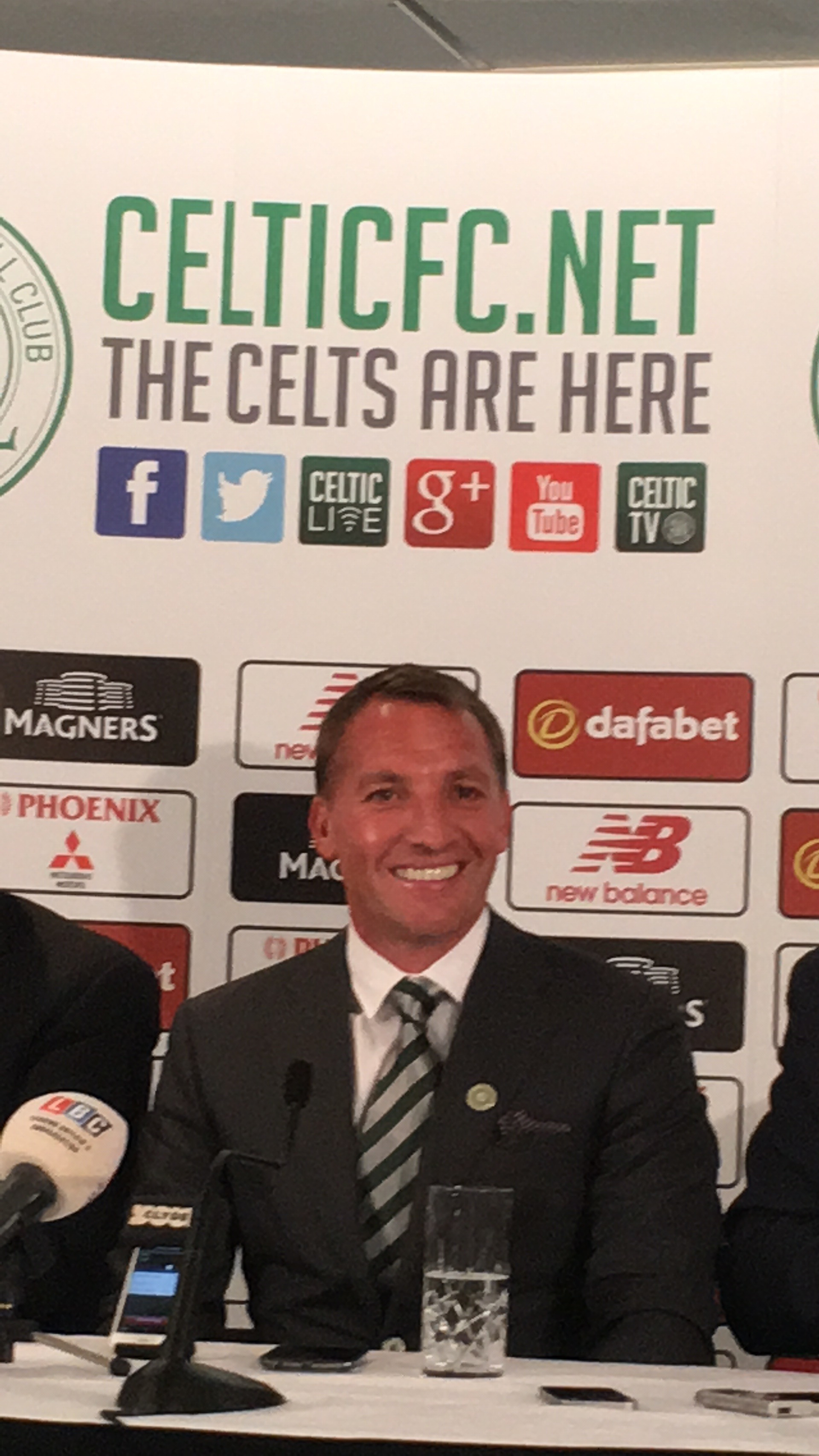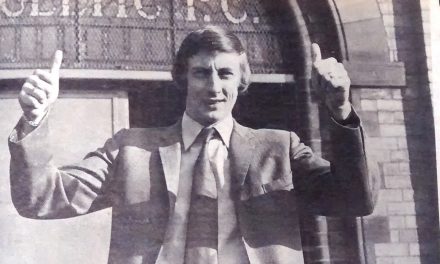By Lachie Mor
*** This piece was clearly written some time ago but given all that has happened since its initial run we have clearly begun the process of separation and all that marks them out has been their undoing and hopefully will remain the case for many years to come. ***
I wonder as I begin my rumination this week whether I am in a minority of one, or if the position I am about to reflect on would garner support from any others in Timdom. In essence, if I were in position of power and were able to describe a world in which I would happily live, I would, in a heartbeat, do away with Glasgow Rangers F.C. My own view is that my life is in no way enhanced by their existence, and even the delight I feel when they lose is more than tempered by the dismay experienced at their successes and over the years that I have watched football there have been many gloomy days when the Forces of Darkness have ruled and the Light was dimmed if not quite extinguished.
Perhaps my formative years as a Celtic fan were coloured by the fact that defeat at the hands of the Dark Horde was the norm and the brief moments of resurgence were soon eclipsed in games of much greater import than our days of rebellion. Truly the only real moment of light was the game that is ‘etched on every Celtic Heart’, but I was too young in the eyes of my mother to attend encounters with the Ibrox side, and in truth the fire of my interest in the green and white brigade was still at a kindling stage. While I knew what had happened, the full import of this great victory in some sense passed me by. When I did start following the Hoops regularly, the side which has been cited by some of the follow followers as their greatest ever team – that of Baxter, McMillan, Brand, Wilson etc. – was in its pomp, and few were the crumbs of victory savoured by the Tims.
My first win in these encounters was a 3-1 league triumph at Paradise and we saw this as the green shoots of recovery only for the Huns to deal out a harsh retribution a few weeks later in the League Cup Final. There was another desultory victory in a Glasgow Cup Tie – again at Celtic Park, but I was at school and missed the game. As seemed normal later in the season, our Hooped Heroes were comprehensively thrashed in the Scottish Cup Final replay at Hampden.
What made it worse was the fact that my parents moved house in the late ‘50’s from the Calton to Castlemilk and I was surrounded by Rangers supporters who rubbed in the fact that our club was in serious decline. In some ways the worst of these was a friend who pretended to sympathise with our plight and made ludicrous comments to the effect that winning all the time became boring. I knew then that this was a lie and still think so to this day. When I hear complaints about our style of play, and I have some sympathy with the argument, I remember the pain of losing and somehow it seems ungracious to moan. To paraphrase Billy Connolly’s comments about his financial situation I would say – ‘I’ve tried winning and I’ve tried losing – winning is better.’
While these early experiences have no doubt influenced me, my distaste for Mordor and its inhabitants lie deeper than that. The whole concept of the Old Firm is anathema to me. I resent the way that Celtic is seen as the ying to their yang, that we are not viewed by many around the football world and in society as ourselves – as a unique club whose achievements and traditions are valued and esteemed – but rather as the obverse of a dark and sinister coin whose presence is a blight on the community.
The hostility between the clubs and their followers is a phenomenon that grew over time, since it was not always so. History records that our first opponents were Rangers and both clubs adjourned to St Mary’s Hall in the Calton for a supper and sing song. In the early years the rivalry was purely sporting, but as Celtic grew into a force to be reckoned with, their ethnic and religious origins became an issue for many in Scotland who wished them no good. Originally the establishment club was Queen’s Park, but their decline following the advent of professionalism was dramatic, and those who were anti Celtic looked elsewhere for a champion to put the upstarts in their place.
Tom Campbell and Pat Woods record:
The twentieth century had dawned with the greatest rivalry in British football emerging and taking shape – that between Celtic and Rangers with its quasi-racial and religious overtones, the ‘Irish Catholic’ Celtic and the ‘Scottish Protestant’ Rangers being linked together under the appellation of the Old Firm. The tag suggests both the monopoly of the football honours which they were beginning to enjoy and the economic strength derived from their pulling power. This rivalry had become even more profitable and had sharpened by the introduction of the league competition and professionalism.
Their symbiotic relationship was not of the smoothest, as ‘A Celt’ observed after Celtic’s 5-3 victory in an 1894 league match at Parkhead. The columnist bemoaned the virtual disappearance of the socialising, once a feature of the sport and of this particular fixture. He added that he had been informed by Celtic players that ‘the language some of the Rangers’ players used was most disgraceful – ‘Fenian, Papist, Irish’ all being hurled with, of course, the most vulgar accompaniments. This is not how it used to be; Rangers and Celts were always pretty friendly and the change of front seems strange. If players were out of gear, so too were the officials. A more grumpy lot it would have been hard to find than the light blue officials.’
(Dreams and Songs to Sing)
It is tempting to say that nothing has changed, and it must be noted that the correspondent of the Glasgow Observer may have been less than totally neutral in his comments but it would seem that the die was cast and enmity, bitterness and rancour replaced more sporting virtues which had till then held sway.
Woods and Campbell go one to say with reference to Jimmy Quinn:
Celtic’s hero, despite his fire and passion, was a quiet man who detested the partisanship involved in football and the Old Firm rivalry in particular.
This is made more understandable by their account of one of his first experiences of the unique Old Firm atmosphere:
The fallout could not be delayed for long, the ill feeling duly manifesting itself in May 1901 when a Charity Cup match between the clubs inaugurated the athletic programme of Glasgow’s second international exhibition. Jimmy Quinn, a mere stripling at the time was fielded at outside right in the match held at the compact and picturesque Exhibition ground at Gilmorehill. He would recall vividly the indignities visited upon his two famous team mates, Sandy McMahon and Johnny Campbell: ‘When passing through the stand passage to and from the field they were both spat on – indeed Sandy was in an awful mess. I never saw anyone in such a rage as Sandy was and it was with the greatest difficulty he was kept back from attempting to gain redress’
Obviously ‘charity’ did not extend itself to the wearers of the green and white from those who followed the blue.
Clearly, the introduction of a sectarian and racist dimension could only have a negative effect on what had hitherto been a sporting rivalry. As the incomers and the objects of this hostility Celtic and their fans gained little from this apparent symbiosis – a relationship which was of greater benefit to one than the other. The enthusiasm of referees and other officials to be less than totally even handed throughout the years of Old Firm rivalry are testament to this fact. So marked has the favouritism of the Scottish Football establishment been that simply to mention it draws accusations of paranoia and the appreciation in officialdom and the media at each Rangers success is only too obvious.
During Stein’s time at Celtic Park there was a slight moderation in the injustices perpetrated on Celtic, perhaps because he knew the devil he was dealing with, having been on the other side, and was prepared to stand up in a way that was rare for Celtic folk. The only recorded act of complete defiance that I can think of was by Bob Kelly during what became known as ‘the Great Flag Flutter’. It is a pity that he and his family who ran our club for generations did not consider such civil disobedience over the many wrongs perpetrated on the club through its history rather than save his wrath for a quarrel over a flag. Ironically one club who supported him in his stance was Glasgow Rangers.
Whilst I acknowledge that my formative, negative experiences colour my view, I found that even in our years of glory and pomp as Stein’s magnificent Celtic swept all before them, when engaged in conflict with the Evil Empire, winning was all that mattered – substance over style. It was little consolation following the cup final defeats of 1966 and 1973 that those Rangers teams were capable of competing at a high level in Europe, or that we outplayed them in both matches for long periods, the gloom which accompanied the defeat was palpable in Timland.
For the best part of 20 years Rangers were consigned to the role of gallant competitors, but their periodic outbreaks of defiance took the gloss from our own achievements, since deep down I feared a return to the bad old days of my youth. That this came to pass with the arrival of the Tom Sellick look-alike seemed inevitable, and a long dark experience was at hand for all of us of a green and white persuasion.
During these years I was engaged in raising a family and progressing in my profession outside of Glasgow, and while I attended Celtic Park as often as I could, my visits to Mordor ceased – apart from semi-finals and the like. I found with the growth in the number of televised matches that while I could still cope with being at the game, watching the Celts on T.V. was somehow harder. This was especially true of games versus the Dark Side. I would prowl around outside or go for walks and convinced myself that my watching the match would jinx our Bhoys. If a win was the price of my missing the game, it was one that I was prepared to pay, but I found paradoxically, that if we lost, the pain was lessened by not watching it.
I still suffered the anguish of defeat, but the anger, the fury and the negative emotions which bring out the worst in all of us during the game did not come into play. Curiously, watching victories on tape was just as sweet as ever and could be savoured over and over – (and over ……)
Quite apart from my own personal neuroses, there are other reasons for disliking the Ibrox side and the Morgul Horde who make up a large section of their support. Their least attractive trait – and they have many unattractive qualities – is their over-weaning arrogance and belief that they have a right to success and that everyone else is beneath their contempt. While this sense of superiority was a deliberate feature of Bill Struth’s modus operandi – and there is a logic to self belief bringing success – they have taken it to a new level embodied in the concept – ‘We arra peepul’.
This mantra which was always a feature of their support and the club itself – although they might have worded it better – was taken to a new level following the ascendancy of Souness and the recruitment of Murray to the cause. My own views of Murray are well recorded in the annals of the Etims, but if ever a marriage was made in hell it was the joining of Glasgow Rangers with their already obnoxious attitudes to all around them, and David Murray with his enormous ego and thirst for success at all costs.
Murray soon sensed that the way to the heart of the support was to stick it to Celtic at every opportunity and everything that went on during the nine-in-a-row period was based on that objective. I suppose it is some consolation that this obsession – encapsulated in the ‘for every five pounds Celtic spend I will spend ten’ philosophy – allowed him to waste untold millions to beat some of the worst Celtic teams in history, but paved the way for our revival when someone with financial nous and a bit of bottle arrived to take him on.
Step forward Fergus – given the starting point that the Bunnet inherited, his achievements are nothing short of miraculous – but one thing he did do was to seriously scare Murray. If the lunatic spending policy was not evidence of this, then his attempts to manipulate the media to portray our odd little chairman in a bad light, certainly was.
Since Fergus however, the playing field has been on more of a level plain, and the days of Rangers dominance are but a memory – but the shade still hovers. What has become clear however is that Celtic do not need the Old Firm baggage to become a success on a broader stage. The Celtic brand which was so ridiculed by the press and the custodians when Fergus outlined his ambitions, is a reality – it is possible for Celtic to become a major world player without Rangers at their elbow.
When the Paris Buns were on top they gave little thought to marketing themselves without us, so why should Celtic feel thirled to working in cooperation with those who mean us no good. Peter Lawell replied to a letter that I sent him, to say that some sponsors will only do business with both, but I would argue that we simply have to look further afield for backing and give no thought to their situation at all. A shared deal is a deal halved in terms of income, so it behoves our representatives to hunt out more deals such as the Nike project and leave the Orcs to fend for themselves – they are, after all, run by a financial heavyweight (copyright Chic Young –Jan 2005).
The time is now ripe for Celtic to look furth of Scotland and to leave this unholy and perfidious alliance behind. I cannot think of a single instance other than gate money through which Celtic have benefited from this relationship. They on the other hand define themselves against what we are doing – we are the benchmark by which their ever loyal support measures themselves and this narrow perspective is what limits their club and their horizons. If you are defined by what you are against then you will find it difficult to describe what you really embody. Murray has attempted to do this with his imperialist anthems and his ‘Simply the Best’ ideology, but this model has a limited appeal and he will find few outwith the denizens of the Death Star, and the various fascist organisations which make up the Loyalist community and the National Front prepared to buy into it.
I know that many folk deride Dermot Desmond’s notions of the Premiership, but something is in the air and he did not make his fortune by wishing on a star. The time is now ripe for Celtic to cast aside the Old Firm and to stake a place amongst the big boys. This can be done. At one time Manchester City were Utd.’s greatest rivals, as Everton were Liverpool’s and Tottenham – Arsenal’s. Nowadays these are local disputes with little at stake other than bragging rights. The real contenders know well who they are playing against for the glittering prizes. Follow these examples Celtic – you have nothing to lose.

